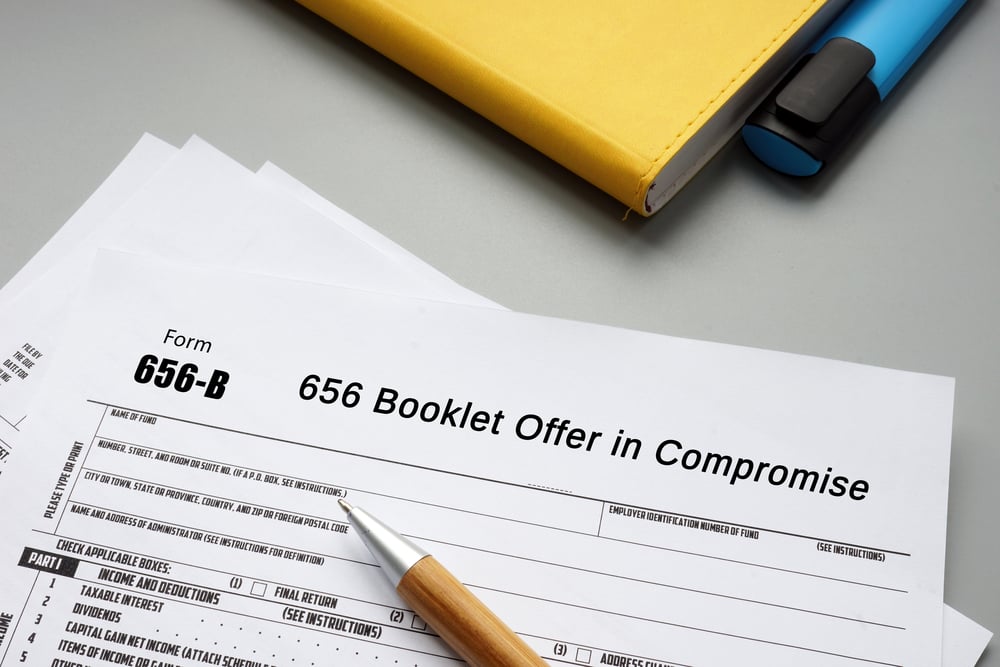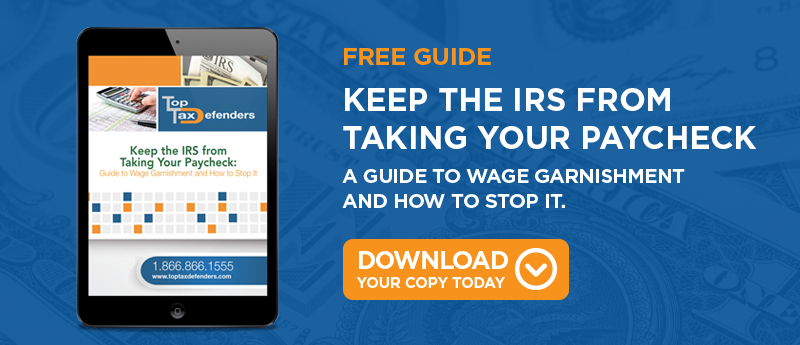
The IRS allows cash-strapped taxpayers several different options to resolve their back taxes. They can either make an Offer in Compromise, or OIC, or they can request that their accounts be put in a Currently Not Collectible, or CNC, status. You can determine which of these options is best for your own delinquent tax situation by learning the basics of both choices.
Offer in Compromise
An Offer in Compromise involves you making the IRS a one-time offer to pay off a portion of your debt. If you are unable to pay off the entire sum, but have the money to at least pay part of it, you may choose an OIC.To make an OIC, you must file the required IRS Form 656 and pay a $186 filing fee. If the IRS accepts your offer, you must pay the agreed amount within a 11 to 24-month time frame. You should note, however, that this option eliminates the statute of limitations, typically 10 years, that the IRS can collect on your tax debt.
An OIC that is accepted effectively releases any garnishments, levies, or other IRS collection activity against you. Per the terms of the OIC option, you must file your future tax returns on time and pay any taxes you may owe.
Alternatively, the IRS also has the option of rejecting your OIC, particularly if it suspects that you have the assets to pay off your debt or if you have been dishonest about disclosing your financial situation. If your offer is rejected, you still owe the tax debt, and you no longer have the statute of limitations to protect you from future IRS collection activity.
Currently Not Collectible Status
If you genuinely lack the money to pay off your tax debt, you may have your account put into a Currently Not Collectible, or CNC, status. The CNC status indicates that you have no cash and no assets like a 401K, IRA, or any other asset that can be liquidated to resolve the account.Some of the more common reasons that the IRS will put an account into CNC status include:
- Taxpayer financial hardship
- The statutory period for collection expires
- The taxpayer and his/her assets cannot be located
- The taxpayer dies without any liquid assets or money
When your account is denoted as CNC and the statute of limitations has not expired, you pay nothing toward your debt right now. Even so, your account being denoted as CNC does not release you from your obligation to pay off or settle the debt in the near future.
In fact, the IRS will closely monitor your future tax returns to determine if you do have the money to pay off the debt. If you earn more money, receive an inheritance, or otherwise obtain the means to pay your account, the IRS will seize those assets and use it to pay off what you owe.
A CNC status also does not eliminate the possibility that the IRS may garnish or levy you in the future. It will closely watch your bank accounts and earnings to determine if you are able to resolve your debt. If it finds that you have the means, it may take future collection action against you.
When you owe the IRS money and do not have the money to pay off any or all of your back taxes, you have two options to resolve your account. An Offer in Compromise and the Currently Not Collectible option allows taxpayers like you to avoid collection activity, have garnishments and levies released, and affordably settle your tax obligation. When you know the basics of both choices, you can then approach the IRS and take the necessary steps to resolve your back taxes.




